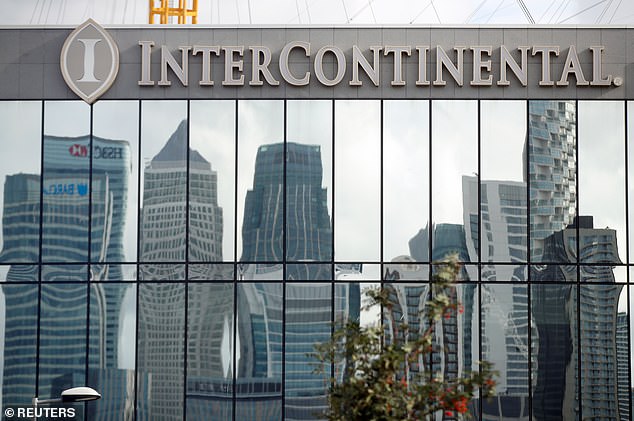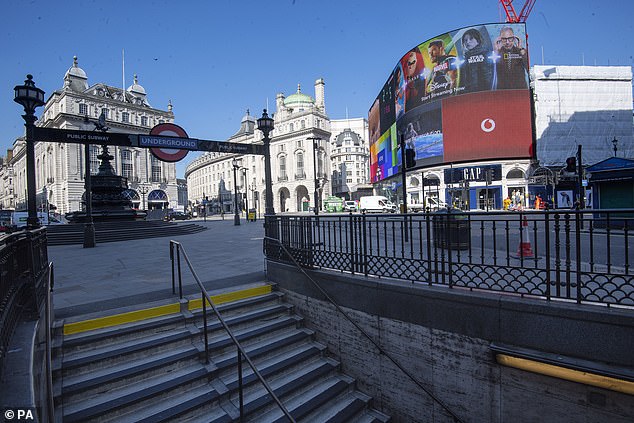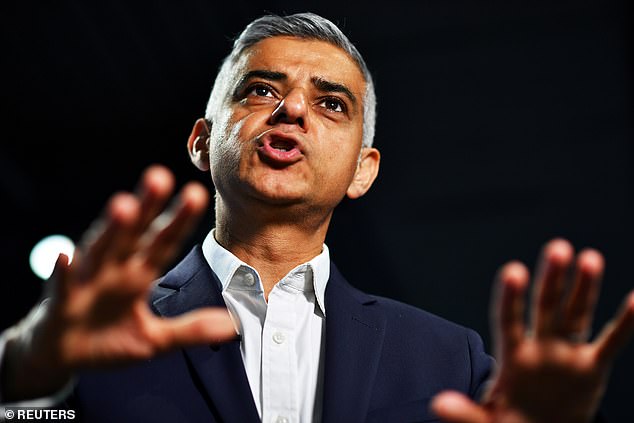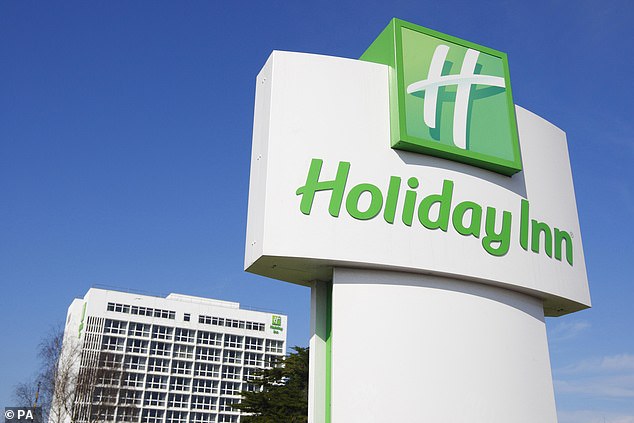Holiday Inn owner IHG continues to open hotels as occupancy rates recover strongly in China and the US
- The Americas saw the most hotel openings, with ground broken on another 30
- IHG has already announced 650 job losses as part of a $150m cost-cutting plan
- UN Secretary-General: Around 120 million jobs in the tourism industry are at risk
Intercontinental Hotels Group (IHG) has said it has managed to open dozens of premises despite its hotel rooms remaining mostly unoccupied.
The FTSE 100 firm, which owns the Holiday Inn and Crowne Plaza chains, revealed it opened 82 hotels in the three months to September 30, taking the number it has opened this year to over 250.
Almost 200 sites stayed shut at the end of last month however as travel restrictions and quarantine rules continued to suppress the international tourism and business travel market.
The Holiday Inn owner said it opened 82 hotels in the quarter to the end of September
Domestic excursions are doing relatively better by comparison due to the growth of staycation holidays in the USA and China, which helped the company’s occupancy rates recover to 44 per cent from 25 per cent the previous quarter.
IHG said it saw demand grow over the US Labor Day holiday weekend, while hotels in ‘Tier 2-4’ Chinese cities, which rely more on domestic trade, saw its revenue per available room (RevPAR) fall only 12 per cent against the same period in 2019.
Performance throughout the rest of the world was much less successful with RevPAR dropping by two thirds in Australia and the Middle East, and by 72.4 per cent in Europe, despite leisure travel picking up in July and August.
Total RevPAR during the third quarter plummeted by 53 per cent, though this was a significant improvement from the three-quarters drop from April to June and Greater China registered just a 23 per cent decline.
Despite the slowdown in trade, chief executive Keith Barr provided an optimistic outlook of his firm’s performance. He wrote: ‘Despite the challenges we’ve faced, we have continued to open new hotels and sign more into our pipeline.
‘This is recognition of consumer preference for our brands and strong owner relationships, and also the long-term attractiveness of the markets we operate in and the relative resilience of our business model.’

European RevPAR fell by 72.4 per cent, despite leisure travel picking up in July and August
The Americas saw the most hotel openings, with ground broken on another 30. Greater China had the most room signings, with almost twice the number of Asia, Africa, the Middle East and Europe combined.
Barr warned nonetheless that ‘a full industry recovery will take time and uncertainty remains regarding the potential for further improvement in the short term.’
IHG has already announced 650 job losses as part of a $150million cost reduction programme in response to the coronavirus pandemic. Other hotel operators such as Premier Inn owner Whitbread, Accor and Hilton Hotels have also declared job cuts.

London’s tourism sector has experienced a disproportionate impact from Covid-19 this year
In August, UN Secretary-General Antonio Guterres warned that around 120 million jobs in the industry were at risk from the pandemic and that global tourist numbers are expected to tumble by between 58 and 78 per cent this year.
Megacity hotels have been far more affected by the disease than country and small-town hotels because they tend to depend more on foreign travellers for business.
Most inbound visitors to the United Kingdom go to London, and 62.3 per cent of all their spending in England in 2018 was in the British capital. So, the city’s hotel sector has experienced a disproportionate impact from Covid-19 this year.
New analysis published today by the London mayor Sadiq Khan estimates that tourism spending in the capital will decrease by £10.9billion this year, with two-thirds of the reduction coming from lower foreign tourist expenditure.

Analysis by the London mayor Sadiq Khan estimates that tourism spending in London will fall by £10.9billion in 2020, with two-thirds of the drop coming from lower foreign travel spending
In a statement, Mr Khan called on the government to ‘get its act together and provide a functioning test and trace system’ and extend the business rates holiday into next year.
Russ Mould, an investment analyst at AJ Bell, said IHG’s latest results ‘contains reasons to be optimistic. Occupancy rates are improving from lows seen earlier this year, and the decline in revenue per available room is nowhere near as bad as the previous quarter.
‘Positive cash flow has improved the company’s liquidity position, which is very important as it provides a stronger buffer to support the business should the pandemic linger well into 2021.
‘Interestingly, it continues to open new hotels, showing that management has got an eye on the long-term opportunity rather than sitting on their hands, waiting for the crisis to disappear.’
Shares in Intercontinental Hotels Group (IHG) closed 1.45 per cent down at £42.01.

